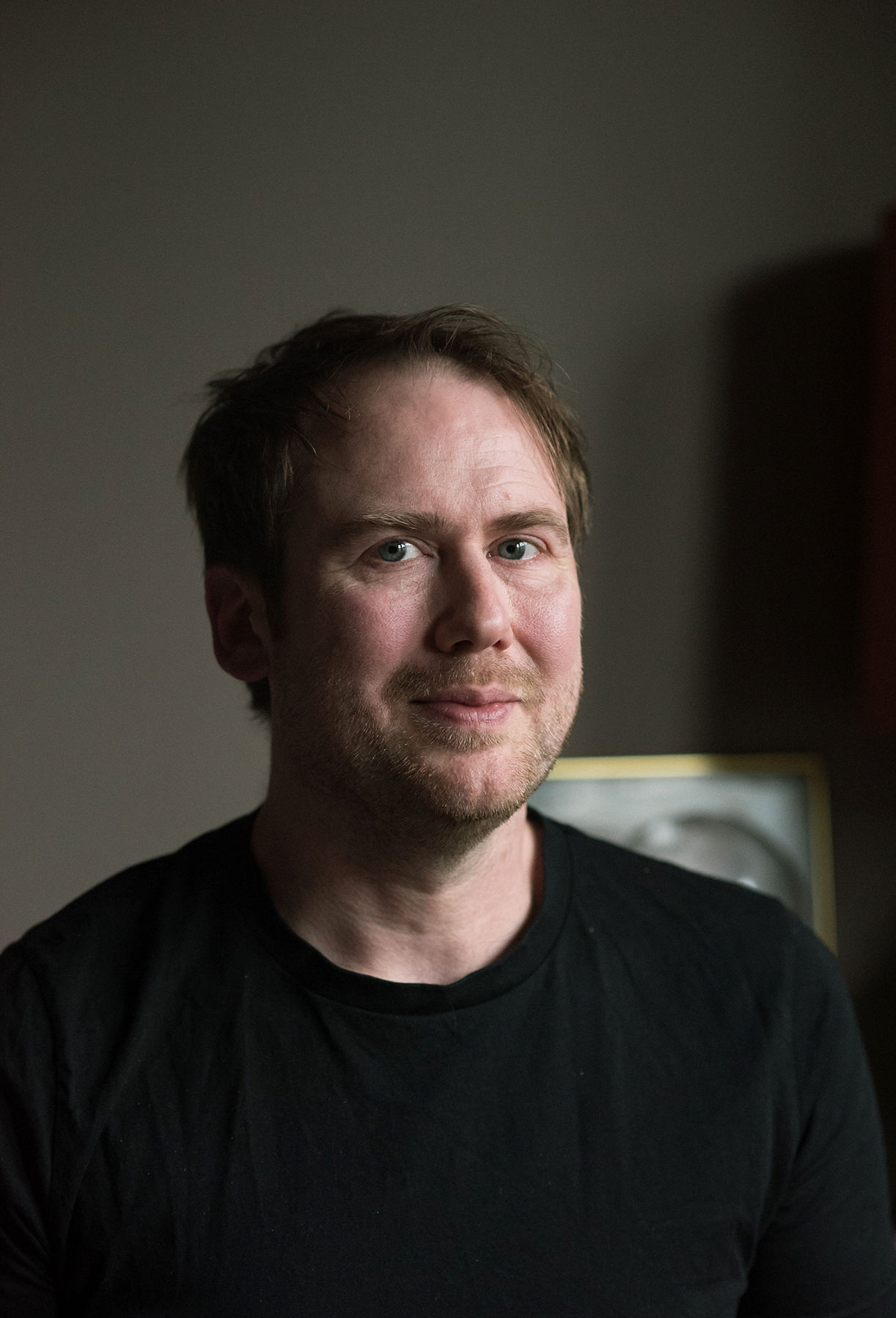Copyright newstatesman

Ben Pester is one of the four first-time novelists on the Goldsmiths Prize shortlist. The writer, a graduate of drama and screenwriting, first attracted attention by writing short stories for literary journals such as the London Magazine and Granta. His first book, Am I in the Right Place? (Boiler House Press, 2021), was a collection of “vertiginous and stunningly weird stories”, as the New Statesman contributing writer Chris Power put it. His follow-up, The Expansion Project (Granta), is his first novel. In it, office worker Tom Crowley takes his daughter for a day out at the Capmeadow business park where he works – then he loses her. Despite frantic attempts to locate eight-year-old Hen in the maze of floors and corridors, she is nowhere to be found. It later transpires that Hen has been at school all day, and that Tom never brought her with him at all. Was it even a bring-your-daughter-to-work day? What is going on? This discombobulating opening sets up the novel’s absorbing blend of mystery, psychological confusion and corporate over-reach. The further we get into Pester’s alienating world, the more we see of Capmeadow’s eponymous expansion – new office blocks, housing estates and plazas continuously build themselves, and the company-world grows to the horizon of the novel and its characters. Pester’s prose captures the dreamy, emotional dysfunction of the workplace, and tempers internal turmoil with a sense of self-doubt. Megan Nolan, one of the judges of this year’s Goldsmiths award, described The Expansion Project as a “magnificently destabilising rendering of work life which is both familiar and totally foreign”. It is, she said, “disturbing, funny and deeply odd”. Barney Horner: The Expansion Project is told from multiple perspectives, but we always return to Tom Crowley’s. Was he as important to the book’s structure as to its story? Ben Pester: Tom Crowley was relatively new in the process of writing the book. For a long time, the idea of a cursed/expanding workplace as the setting for a novel had been the fixed idea. People ask you what the project is about when you’re working on something and my answer was always, “It’s a haunted business park, but haunted by the building project itself, which happens invisibly…” People sort of smiled politely, but it’s really just a concept. The man losing his daughter in the sprawl of the business park became my way into this as a “story” with a “plot”, so Tom and his daughter, Hen, were really my way in. It makes sense that we return to him for plot points, but also for the emotional gauge of the book. There’s a sense, with the business park’s expansion, of the line between workplace and homespace collapsing entirely – workers at Capmeadow move into the houses being built there. Did the pandemic and its corollary, the lockdown, play a part in the development of your ideas? Yes, this definitely is there, but I think most of this feeling comes from a very personal way of experiencing feeling lost between the different worlds of work and home life, and then the minor worlds within those ones (like the world of my kids’ rooms at bedtime vs the world of the street I can see and hear outside, and could go to instead of being here doing this) and also the fragile structure of memory and reality. I am interested always in working at that membrane between the realities of what is happening, what has just happened, and what I perceive of all of this. Am I at work, or am I pretending to be at work? On a more practical level, lockdown did bring this remote way of living to the world quite suddenly, but I think some of the split-life thinking for me started before then. I was definitely already checking work apps like Slack on my phone – almost as a part of the cycle of checking social media. Two unhealthy things compounding each other. I also worked in Hatfield when I first started the short story that gave birth to the novel – Capmeadow is a sort of play on Hatfield (a portmanteau of headwear-arable land) – and there were constant building projects on the outskirts of town, these new business centres offering hopeful new prospects while the town centre itself – the high street – was visibly fading away. Tea-stained, ragged banners for past, failed rejuvenation projects hang there still. A poster child for the hollowing out caused by austerity. Tom’s job at the Capmeadow is to help make its official messaging – its signage, notices and manuals – inspirational yet neutral. This is the sort of anodyne corporate-speak one can now imagine being churned out by AI models. Do you think language will become more or less important in our brave new world? AI already faces the danger that the text it generates – especially in a work context – is so boring people don’t read it carefully. We sort of sense that an LLM [large language model] has generated the message, and so give it less attention. There are dangerous consequences of this: a lot of people use AI to write things that are hard to explain, and often this means they are complex procedures or legally sensitive documents. It might take ten seconds to write it, but is that good if nobody can face reading it? I feel sure this will keep causing problems and, eventually, mean AI is banned from certain types of communication. Eventually, we will get the gist only of long and complex discussions that an LLM is having with itself. And it’s very likely that this will waste a lot of time and energy. In the meantime, we lose even more contact with each other – which is like a kind of death of civilisation by dry rot. The creation of literary works by AI is also pointless because, really, the act of writing something is actually the thing itself. That’s both the method and the outcome. Maybe the saddest thing about all of this that the people pedalling AI misunderstand their own culture so much that they think writers consider writing to be somehow too much like hard work. Honestly, if you want to make AI that complains to the council for you, then go ahead, but if you use AI to write a book, then you’re not a writer. Perhaps relatedly, why do we need the Goldsmiths Prize? I hope we are not yet at the stage where we need prizes for books by humans. But we definitely need the Goldsmiths Prize to keep people turned on to writing that is more concerned with human experience – literature that is messy, miscoded, sometimes hard to make sense of, not formed simply to entertain but also to ask questions. Corporate architecture and privatised space are integral concepts to the novel – specifically, the sense of anonymity and alienation they often impart to those passing through. A stylised office-looking building in a green field even adorns the cover jacket. Did you do any research visits in advance of writing? Did you have a pre-existing interest in the way societies build out their spaces? I am most interested in these unresolved aspects of privately owned, publicly accessible spaces. The sense of optimism and safety intended by the geography of them vs the surveilled, highly protected, jealously guarded reality. In such spaces, those who do not immediately look like they belong become monitored and eventually moved on. If you spend time in those public/private spaces without spending money, you begin to wonder if you’re even allowed to be there. And this is really odd because it feels like a public place, but in fact it isn’t. It’s something else. And if your perspective slips out into asking why it is that there can be a security guard who can move you off what looks like just a street, then you start to wonder where you are even allowed to be. And how did the ground itself become a thing you cannot stand on without participating in the capitalist wheeze? Tell me about a piece of art, literature or music that was important to you when writing this book. Oh, everything! I’m always reading and I let all of it influence the work. I especially try to be influenced by contemporary writers, and because I am getting going a little bit late (I am 45) this includes a lot of people who are younger than me. I love this – those generational differences matter so much in understanding or misunderstanding the world. There’s so much anxiety now, but we all do it differently. It’s paradoxically a great time to be writing – everyone is really pushing how deep you can go into the queasiness of these times. Specifically, the landscapes of Félix Vallotton – especially his ponds and bathing scenes – have been really helpful in all my writing. The images tend to be in places very intricately lit and coloured, and then something like water is simply a block of very dark paint. It is so menacing and yet serene, and that sense of unease never really reconciles. I am constantly trying to reach that effect in my work. Sometimes it feels like I am heading there, and sometimes I have to admit that I will never be Félix Vallotton. The Goldsmiths Prize was set up to reward fiction that “breaks the mould or extends the possibilities of the novel form”. What can an “innovative” approach offer the reader (and writer) that a more conventional novel might not? What I think is innovative in a novel is the drawing out of unexpected emotional reactions. Feelings of disquiet, uncomfortable sensations that mix with humour or even lust (look at romantasy for an honest expression of the very weird/interesting landscape of sexuality right now – is this innovative? Maybe. Probably.) I also think innovation in writing means that it’s not easy just to be entertained. It’s not easy to just sit and let it happen – you have to give back. You have to try and understand. I don’t think it’s new either. There are much more qualified people than me who can tell you that the novel has always been a kind of radical stranger in the art world. It has always been making people think in ways that challenge narrative conventions. Confusion over time is a key component to the experience of working/living in Capmeadow. Tom complains of his life feeling like a “memory of a dream”. Why do you think prose is such an effective means of conveying this sense of disorientation? I think this is maybe a sort of trick, and I think that’s OK. I think that as long as the writing is clean and the prose is “good” then as a reader you can’t help sort of skipping along word after word. As a writer, once you have someone following the inevitable rise of the next word, the next sentence, then you can start making them experience things that don’t quite work. In the world of the left-to-right sentence, you are at the mercy of the next word making sense, and yet conjuring an image that seems contradictory. You can say, “I am a brick, and although I cannot make a will, this is my Last Will and Testament. I am of sound mind. I’m a brick. I cannot write this, and yet here you are reading it.” There is a “meat moss” tactility to the raw materials of Capmeadow’s expansion – new development is “damp” and “juicy” before it hardens into sprawl, ducts and wires as tentacles. Was science fiction a significant influence on your world-building? I don’t read as much sci-fi as I really should, but I have always felt happy being on the edges of it. I try to be respectful of the hard genres – and am always so happy when lovers of science fiction or horror find something in my work. Which past British or Irish novel deserves a retrospective Goldsmiths Prize? Why? Oh, I think the answer I’ve always thought I would give to this is The Unconsoled by Kazuo Ishiguro – but I now think maybe it’s an answer loads of people would give. Is that bad? Or The Waves by Virginia Woolf. Those are two of my favourite books. But imagine it went to Dickens! Imagine Bleak House had won it. Spontaneous combustion. A woman needing to walk in the wet grass because of how incurably angry her working life makes her. The creepingness of the man who claims to be a child and hangs around the place. I think for the darkness in the corners of that book, I would support Bleak House. “The Expansion Project” by Ben Pester is published by Granta. The winner of the 2025 Goldsmiths Prize is announced on 5 November. Read more interviews with the shortlisted writers here.



